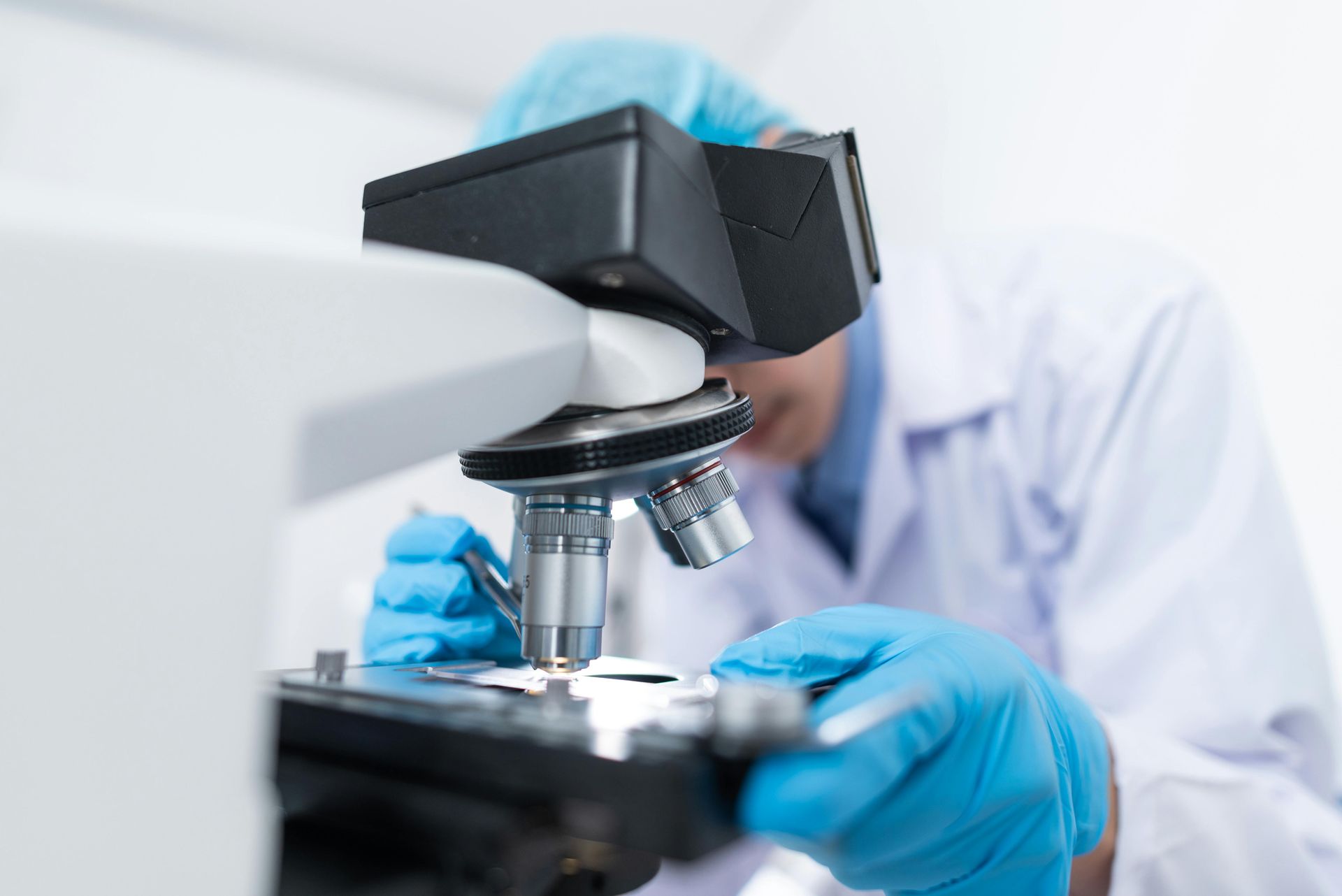Mid-Summer Health Tips to Support Fertility and Wellness
Dr. Marika Raff • August 5, 2025
Stay Cool, Nourished, and Fertility-Focused Through the Southwest Summer Heat
As the summer heat peaks in New Mexico and Texas, it's important to stay mindful of your health—especially if you’re trying to conceive or undergoing fertility treatments. At Caperton Fertility Institute, we’re committed to supporting your journey with expert care and personalized guidance. Here are our top mid-summer health tips to help you stay cool, healthy, and fertility-focused through the season.
1. Hydrate with Purpose
The dry heat of Albuquerque and El Paso can lead to rapid dehydration, which may impact hormone balance and reproductive health. Aim for at least 8–10 glasses of water a day. Add slices of lemon, cucumber, or mint to enhance flavor and encourage regular hydration.
2. Optimize Your Summer Diet
- Fertility-friendly foods are rich in antioxidants, omega-3s, and folate. Incorporate:
- Seasonal fruits like berries, watermelon, and oranges
- Leafy greens and avocados
- Cold-water fish like salmon (low in mercury)
- Nuts and seeds
- Avoid sugary drinks and excessive caffeine, both of which can contribute to inflammation and hormonal disruption.
3. Time Outdoor Activities Wisely
The intense afternoon sun in the Southwest can increase core body temperature, which may not be ideal during fertility treatments or early pregnancy. Plan walks, gardening, or exercise during cooler morning or evening hours, and always wear breathable clothing and sunscreen.
4. Practice Stress-Reducing Rituals
Summer schedules can get hectic, but maintaining calm is crucial for hormonal balance. Incorporate:
- Gentle yoga or meditation
- Evening baths with Epsom salts
- Journaling or reading in a cool, quiet space
- These practices can improve sleep, support immune health, and enhance fertility outcomes.
5. Stay Informed and Connected
Summer is a great time to check in with your fertility specialist, especially if you're planning treatment in the fall. Whether you're exploring IVF, IUI, or fertility preservation, our team in Albuquerque and El Paso is here to support you every step of the way.
Plan Ahead with Caperton Fertility Institute
Don't let the summer heat slow down your fertility journey. Contact Caperton Fertility Institute to schedule a consultation or learn more about how we can help you prepare for a healthy, successful path to parenthood.
Let’s make this summer count—toward your future family.


When people think about fertility treatment, IVF often comes to mind first. While IVF is an effective and widely known option, it’s important to know that it’s not always the starting point — and for many patients, it may not be necessary at all. Fertility care is not one-size-fits-all. Treatment plans are thoughtfully designed based on your medical history, test results, age, goals, and personal preferences. For many individuals and couples, less invasive treatments can be effective before considering IVF. Here’s a closer look at the fertility treatment “ladder” and the options that may come before IVF. Understanding the Fertility Treatment Ladder The fertility treatment ladder refers to a stepwise approach to care — starting with the least invasive, most appropriate options , and progressing only if needed. This approach helps: Avoid unnecessary treatments Reduce physical, emotional, and financial burden Personalize care for each patient Your care team’s goal is always to recommend the right treatment , not the most aggressive one. Ovulation Induction: Supporting Natural Ovulation Ovulation induction is often one of the first treatments recommended, especially for patients who do not ovulate regularly or predictably. How it works: Oral or injectable medications stimulate the ovaries Ultrasound and hormone monitoring track follicle development Timed intercourse or insemination is planned This option may be helpful for: Irregular or absent ovulation Polycystic ovary syndrome (PCOS) Unexplained infertility Ovulation induction can be a simple and effective first step for many patients. Intrauterine Insemination (IUI): A Minimally Invasive Option IUI involves placing prepared sperm directly into the uterus around the time of ovulation, increasing the chances of fertilization. IUI is often recommended for: Mild male factor infertility Cervical factor infertility Use of donor sperm Unexplained infertility IUI may be done with or without fertility medications, depending on your individual plan. For many patients, IUI offers a balance between increased support and minimal intervention. Lifestyle and Medical Optimization Before or alongside treatment, your care team may focus on optimizing factors that influence fertility, such as: Thyroid function or hormonal imbalances Body mass index (BMI) Underlying medical conditions Timing and frequency of intercourse These adjustments may improve fertility on their own or increase the effectiveness of future treatments. When IVF Becomes the Next Step While IVF isn’t always the starting point, it may be recommended when: Other treatments have not been successful There is severe male factor infertility Fallopian tubes are blocked or damaged Genetic testing is needed Advanced maternal age affects egg quality If IVF becomes part of your journey, it’s because it offers the best chance of success — not because earlier options were skipped or overlooked. Why a Personalized Approach Matters Choosing the right fertility treatment isn’t about speed — it’s about strategy. A thoughtful, step-by-step approach allows patients to feel informed, supported, and confident in their care. At Caperton Fertility Institute, treatment decisions are made collaboratively. Your questions, comfort level, and goals are always part of the conversation. Reassurance for Patients Feeling Overwhelmed If you’re feeling anxious about fertility treatment, know this: IVF is not inevitable for everyone , and it’s never recommended lightly. Many patients conceive with simpler treatments, and even when IVF is needed, it’s introduced with education, preparation, and support — not pressure. You Have Options — and a Team to Guide You No matter where you are on your fertility journey, you deserve care that feels personalized, transparent, and compassionate. If you’re exploring fertility treatment or wondering what your next step should be, Caperton Fertility Institute is here to help you understand your options and move forward with confidence.

The IVF lab is a highly controlled environment designed to closely mimic conditions inside the human body. Temperature, humidity, air quality, and light exposure are carefully regulated to protect eggs, sperm, and embryos. Inside the lab, embryologists — scientists with specialized training in reproductive biology — handle each step with extreme precision. These professionals play a critical role in IVF success, working quietly and meticulously behind the scenes. Step 1: Egg Retrieval and Immediate Care After ovarian stimulation, eggs are retrieved during a brief outpatient procedure. Once collected, the eggs are immediately brought to the IVF lab. In the lab: Eggs are identified and assessed for maturity Each egg is placed in a nutrient-rich culture medium They are stored in incubators that replicate the body’s natural environment Not every retrieved egg will be mature or usable, which is completely normal. Quality matters far more than quantity at this stage. Step 2: Sperm Preparation On the same day as egg retrieval, sperm is prepared in the lab. Whether sperm comes from a partner or a donor, embryologists carefully process the sample to isolate the healthiest, most motile sperm. This step removes debris and non-motile sperm, allowing embryologists to select sperm with the best chance of fertilizing an egg. Step 3: Fertilization — How Eggs and Sperm Come Together There are two main fertilization methods used in IVF: Conventional IVF Eggs and sperm are placed together in a culture dish, allowing fertilization to occur naturally. ICSI (Intracytoplasmic Sperm Injection) A single sperm is carefully injected directly into each mature egg. This method is often used for male factor infertility, prior fertilization challenges, or when working with frozen eggs or sperm. The following day, embryologists check to see which eggs have successfully fertilized. Step 4: Embryo Development and Monitoring Fertilized eggs become embryos and are closely monitored over the next several days as they divide and grow. Embryos typically develop in the lab for 5–7 days, progressing through key stages: Day 1: Fertilization confirmed Day 3: Cell division continues Day 5–6: Blastocyst stage (the stage most commonly used for transfer or freezing) Throughout this time, embryologists assess embryo development, growth patterns, and overall quality — always prioritizing gentle handling and minimal disruption. Step 5: Embryo Grading — What It Really Means Embryo grading helps embryologists describe how an embryo looks under a microscope. It considers factors like cell structure and development stage. While grading provides useful information, it’s important to know: Grading is not a guarantee of success Lower-graded embryos can still lead to healthy pregnancies Many factors beyond appearance influence outcomes Your care team uses grading as one piece of a much bigger picture when making recommendations. Step 6: Genetic Testing (If Chosen) Some patients choose preimplantation genetic testing (PGT) to screen embryos for chromosomal abnormalities. If PGT is performed: A few cells are biopsied from the embryo Embryos are frozen while testing is completed Results help guide future transfer decisions This step is optional and depends on individual medical history, age, and goals. Step 7: Embryo Freezing and Storage Embryos not transferred immediately can be safely frozen using vitrification — a rapid freezing process that prevents ice crystal formation. Frozen embryos can remain safely stored for years, offering flexibility for: Future family-building plans Delayed transfers Additional children later on Freezing technology has advanced significantly, with excellent survival rates after thawing. The Human Side of the IVF Lab While the IVF lab is full of advanced technology, it’s ultimately powered by people. Embryologists treat every egg and embryo with care, respect, and responsibility — knowing how much hope is attached to each one. For many patients, it’s comforting to know that a dedicated team is advocating for them even when they’re not physically present. Why Understanding the Lab Matters Knowing what happens behind the scenes can: Reduce anxiety during IVF Build trust in the process Help patients feel more informed and empowered IVF is not just a medical procedure — it’s a collaboration between patients, physicians, and embryologists working toward the same goal. You’re Never Just a Number At Caperton Fertility Institute, every egg, embryo, and patient story matters. If you ever have questions about your IVF cycle or what’s happening in the lab, your care team is always here to explain and support you. If you’re considering IVF or want to learn more about your treatment options, we invite you to reach out and schedule a consultation.

When people talk about IVF, the focus is often on the medical side—medications, timelines, lab work, and success rates. What’s discussed far less often is the emotional experience , which can be just as intense as the physical process. If you’re feeling overwhelmed, conflicted, hopeful one moment and discouraged the next, you’re not doing IVF “wrong.” These emotional shifts are common—and normal. Here’s what many patients experience emotionally during IVF, even if no one warned them ahead of time. The Emotional Whiplash of Hope and Fear IVF often brings a unique combination of optimism and anxiety. Starting treatment can feel empowering—finally, something is happening. At the same time, that hope may feel fragile, especially if you’ve experienced infertility, loss, or disappointment before. Many patients describe: Feeling excited and terrified at the same time Guarding their optimism to avoid heartbreak Struggling to plan for the future because outcomes feel uncertain This emotional push and pull can be exhausting, and it’s one of the most common aspects of IVF that people don’t expect. Loss of Control (and Why It’s So Hard) IVF places much of the process outside your control—medication schedules, hormone levels, test results, and timing are often dictated by your body and the clinic. Even highly organized, resilient people may feel: Frustrated by last-minute changes Anxious while waiting for updates or phone calls Disconnected from their own body Feeling out of control can be one of the most emotionally challenging parts of IVF, especially for patients used to being proactive problem-solvers. The Two-Week Wait: An Emotional Rollercoaster The time between embryo transfer and pregnancy testing—often called the two-week wait—is widely considered the most emotionally difficult phase of IVF. During this time, patients may experience: Hyper-awareness of every physical sensation Replaying every step of the cycle in their mind Mood swings between confidence and despair Fear of testing too early—or testing at all This waiting period can feel isolating and all-consuming, even when everything medically has gone well. Unexpected Grief (Even During Treatment) IVF can bring up grief in unexpected ways—not just if a cycle fails, but throughout the process. You might grieve: The loss of a “normal” conception experience The version of parenthood you imagined Feeling carefree about pregnancy announcements or baby showers Even successful cycles don’t erase this grief. Many patients feel guilty for mourning while still feeling hopeful—but both emotions can exist at the same time. Relationship Strain and Emotional Distance IVF can impact relationships in ways couples don’t anticipate. Partners may cope differently—one may want to talk constantly, while the other withdraws. Common experiences include: Feeling emotionally out of sync with your partner Pressure to stay “strong” for each other Misunderstandings fueled by stress and fatigue Open communication and compassion—for yourself and your partner—are essential during treatment. You Are Not Weak for Feeling This Way One of the hardest emotional burdens of IVF is the belief that you should be handling it better. Many patients silently wonder why they feel so overwhelmed. The truth is: IVF is emotionally demanding . Feeling anxious, sad, angry, numb, or hopeful—sometimes all in the same day—does not mean you’re failing. It means you’re human. Supporting Your Emotional Well-Being During IVF While you can’t eliminate the emotional challenges of IVF, support can make a meaningful difference. Many patients benefit from: Counseling or fertility-focused therapy Support groups or trusted friends Mindfulness, journaling, or gentle movement Setting boundaries around social media and conversations Most importantly, give yourself permission to feel what you feel—without judgment. You Don’t Have to Carry This Alone IVF is more than a medical treatment; it’s an emotional journey that deserves understanding and compassion. If you’re struggling emotionally during IVF, know that you are not alone—and support is available. Your feelings are valid. Your experience matters. And taking care of your emotional health is just as important as every injection, appointment, and lab result along the way.
